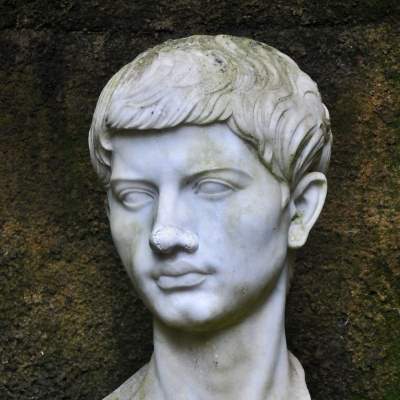
Birthdate: 15 October 70 BC
Nationality: Roman
Bio:
Virgil was born in 70 BC near Mantua in Cisalpine Gaul. He came from a comfortable family background as his father owned land. Virgil displayed a talent for poetry from a young age. He was educated in Cremona and later in Rome, having shown a strong aptitude for literary studies. It is believed he may have later attended the Epicurean school in Naples, an intellectual center which had a major influence on his philosophy.
Virgil established himself as a poet in the late 40s BC. His first major work was the Eclogues, also known as the Bucolics, a collection of 10 pastoral poems. These showed the influence of the Hellenistic poet Theocritus and featured herders and shepherds set in Arcadia. The poems combine rural realism with an awareness of contemporary political tensions, reflecting Virgil’s skill in weaving together poetry and politics. Around the same time he began work on the Georgics, his didactic poem on farming, which he later dedicated to his patron Maecenas.
In the 30s BC, Virgil began composing his magnum opus, the Aeneid. This epic poem told the story of Aeneas, a hero who traveled from Troy to Italy after the Trojan War. It serves as a national epic for the Roman people and emphasizes the founding of Rome and Augustus’s divine authority as emperor. Virgil worked on the Aeneid for 11 years until his death in 19 BC. The poem was left unfinished but reflects Virgil’s political awareness and desire to justify Augustus’ rule by linking it to the founding of Rome through the exploits of Aeneas.
Virgil had a profound influence on Western literature. He established the dactylic hexameter as the meter for epic poetry in Latin and made pastoral poetry a genre of major importance. His works, especially the Aeneid, influenced countless later authors and poets in the European tradition. Virgil had also become a central figure in the national myth of a united Italian peninsula under Augustan rule. He was considered one of Rome’s greatest poets and an innovator who helped establish Latin literature during the early Roman Empire.

